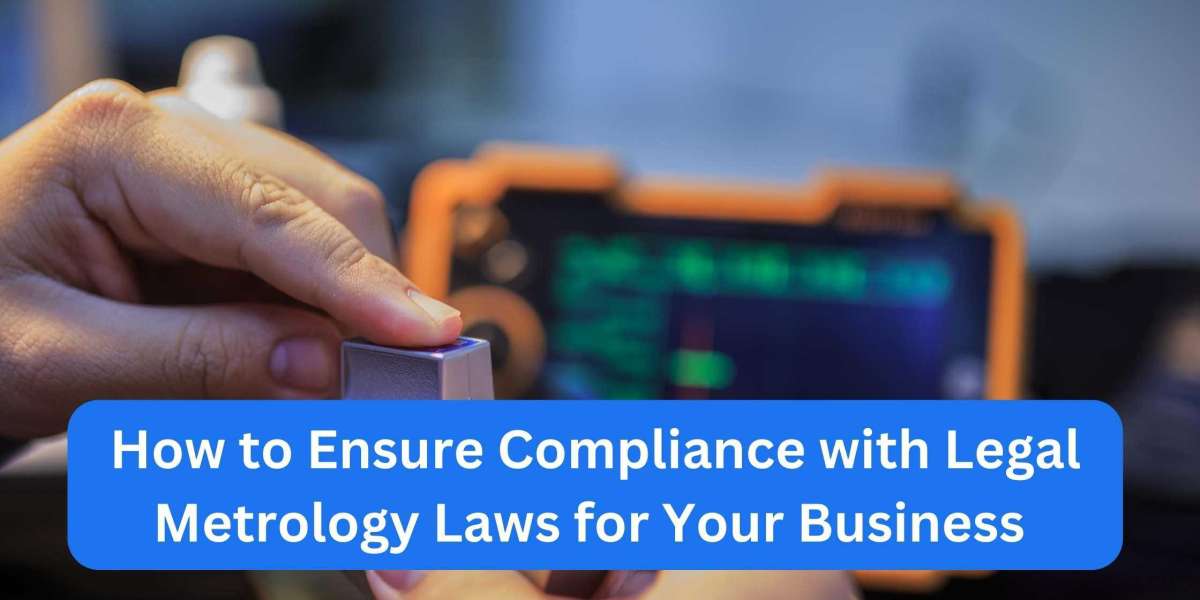Understanding Legal Metrology
Legal metrology governs the standards for measurements and weighing instruments used in trade. It ensures uniformity, fairness, and transparency in commerce while protecting consumers and fostering trust.
- What is Legal Metrology?
- Legal metrology is the science of measurements applied to trade and commerce. It includes rules and regulations for measuring devices to prevent fraud and ensure accuracy in transactions.
- Importance of Legal Metrology for Businesses
Accurate measurements are crucial for fair pricing, maintaining customer trust, and avoiding disputes. Compliance with legal metrology laws ensures businesses operate within the legal framework, promoting transparency.
Overview of Legal Metrology Laws in India
- Key Provisions of the Legal Metrology Act, 2009
The Act outlines requirements for manufacturing, selling, and using weighing and measuring instruments. It mandates periodic verification and calibration of such devices.
- Importance of Compliance with Legal Metrology Regulations
Adhering to these regulations helps businesses avoid hefty fines, legal disputes, and reputational damage while improving operational efficiency.
What is a Legal Metrology License?
- Definition and Purpose
A legal metrology license authorizes businesses to manufacture, import, or sell weighing and measuring instruments in compliance with the law.
- Types of Legal Metrology Licenses
- Manufacturer License: For businesses manufacturing measuring instruments.
- Dealer License: For entities selling these instruments.
- Repairer License: For companies repairing or servicing measuring devices.
The Legal Metrology Manufacturer License
- Importance for Manufacturers
This Legal Metrology Manufacturer license is essential for businesses involved in the production of measuring devices. It ensures their products meet prescribed standards.
- Application Process
- Gather required documents, such as proof of identity and premises ownership.
- Submit the application to the State Controller of Legal Metrology.
- Pay the applicable fees and undergo inspections.
LMPC Certificate Explained
- What is an LMPC Certificate?
The LMPC certificate is mandatory for businesses importing or packaging goods.
- Who Needs It?
Importers and packagers of goods intended for retail sale require this certificate to ensure compliance with labeling and packaging norms.
Weight and Measurement Certificate
- Purpose and Relevance
This Weight and Measurement Certificate validates the accuracy of weighing and measuring instruments, ensuring fair trade practices.
- Industries Requiring This Certificate
Retail, manufacturing, pharmaceuticals, and agriculture sectors commonly require this certification.
Benefits of Compliance with Legal Metrology Laws
- Building Consumer Trust: Demonstrates reliability and transparency.
- Avoiding Penalties: Prevents fines and legal issues.
- Enhanced Business Reputation: Establishes credibility in competitive markets.
Common Challenges in Compliance
- Complex Application Procedures: Understanding and fulfilling documentation requirements can be daunting.
- Maintaining Accurate Records: Businesses must keep detailed logs of inspections and calibrations.
- Periodic Inspections: Ensuring all instruments meet prescribed standards.
Step-by-Step Guide to Obtaining a Legal Metrology License
- Prepare Required Documents: Includes identity proof, property ownership proof, and instrument details.
- Submit Application: Approach the appropriate state or central authority.
- Pay Fees: Ensure payment is made as per the prescribed fee structure.
- Undergo Inspection: Authorities inspect premises and instruments.
Ensuring Ongoing Compliance
- Regular Inspections and Calibrations: Verify the accuracy of instruments periodically.
- Staff Training: Educate employees on the importance of compliance and proper usage of instruments.
The Role of Legal Experts in Compliance
- Why You Need Professional Assistance
Legal consultants simplify the process, ensuring timely application and adherence to regulations.
- How Legal Consultants Streamline Compliance
They provide guidance on documentation, liaise with authorities, and manage periodic renewals.
Penalties for Non-Compliance
- Fines and Legal Implications: Non-compliance may result in penalties and suspension of operations.
- Case Studies: Highlighting real-life examples where businesses faced repercussions for non-compliance.
Best Practices for Compliance
- Using Digital Tools for Record-Keeping: Maintain an organized digital log of inspections and certifications.
- Scheduling Periodic Audits: Identify and rectify discrepancies proactively.
Future Trends in Legal Metrology Compliance
- Digitization of Certification Processes: Online application and tracking systems simplify compliance.
- Global Standards and Their Impact: Aligning with international norms for improved market access.
Frequently Asked Questions on Legal Metrology Compliance
- What is the purpose of the Legal Metrology Act?
To ensure accuracy and fairness in trade through standardized measurement practices.
- Who needs a Legal Metrology License?
Manufacturers, importers, and retailers of measuring devices.
- How can I apply for an LMPC certificate?
Submit an application with necessary documents to the Department of Legal Metrology.
- What happens if I don’t comply with legal metrology laws?
You may face fines, legal actions, and suspension of business operations.
- How often should I calibrate my weighing instruments?
It varies based on regulations, but typically annually or semi-annually.
- Can I appeal if my application is rejected?
Yes, appeals can be made to higher authorities with proper justifications.
Conclusion
Ensuring compliance with legal metrology laws is essential for business success. By obtaining necessary licenses, adhering to standards, and leveraging expert assistance, businesses can avoid legal issues and build lasting trust with consumers.







